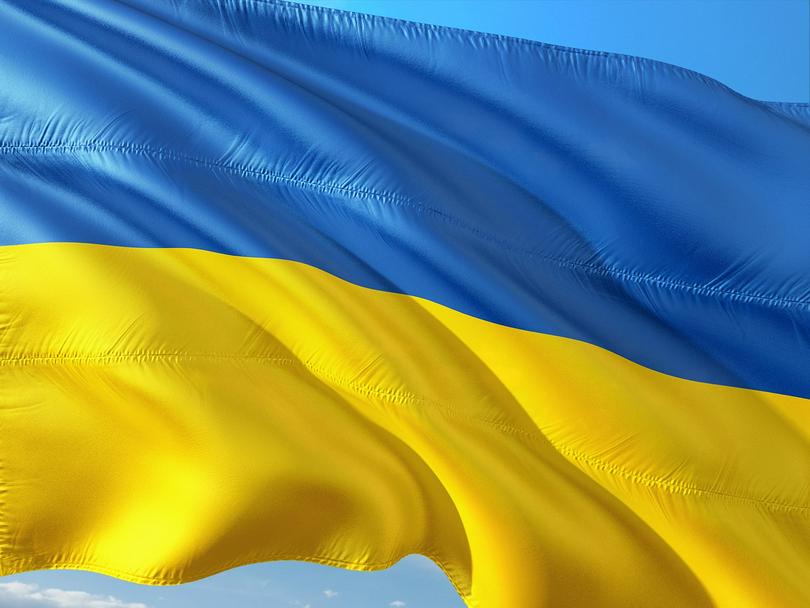This article is an update on my long piece from 17 September 2018 in this same file on Ukraine and Moldova.
People will Need to Rethink Things
L a d u s h k i n -- Since the start of the Russian “operation” in Ukraine on 24 February 2022, I have been overwhelmed with concern and sadness. An avalanche of hatred is rolling towards those of us who do not push the Western interpretation of this conflict. The division between "pro-Russian" and "pro-Ukrainian" Christians will be deep and lasting. The outcome of this crisis is known only to God.
The moral questions are piling up: Who is to blame and for how much? The West asserts that the war began on 24 February 2022. The Russian side retorts that it began in 2014 – that Russia is now not starting a war, but rather ending one. This raises the issue of clarifying terms: What actually is "war"? There is an ongoing "information war" which the Russian side lost long ago. I am reminded of my conversation with the Pentecostal pastor Peter Dudnik in Slaviansk/Eastern Ukraine on 1 April 2015: "When you see the people’s pain, the question of who is to blame is no longer important. Then the only question that matters is: How can I stop this suffering?"
Irpen (or Irpin), a suburb of Kiev and the Ukrainian version of evangelical Wheaton/USA, lies in ruins. The town boasted 13 Protestant congregations and a large selection of Western mission societies. Ukraine offered them ideal working conditions far away from Russian bureaucrats and with completely free access to sponsors in the West. Who among them could not have loved Ukraine?
The flip side: In time, this positioning reduced mission to missionary salvos over into enemy territory. Irpin became increasingly limited to the methods applied during the days of the USSR: literature, electronic broadcasts, visits.
In the humanitarian realm, these missions are doing much good at present. Sergey Rakhuba's "Mission Eurasia" is caring for refugees in Lvov and neighbouring countries. But this also leaves a feeling of "too little too late". These missions had decided against reaching into the spokes of the wheel hurtling towards war - see Bonhoeffer. In any case, I am not aware of any statement in which the Protestant churches of Ukraine had called for talks on the basis of the Minsk II. agreements. Russia had been waiting on such negotiations for seven years.
Names from the original essay
The current Russian demands for military neutralisation and denazification do not sound reprehensible to me. I am not aware of any helpful counter-proposals from the Ukrainian corner. Mikhail Cherenkov of Irpin and "Mission Eurasia" has been in the USA since 2018. In recent months, he had specialised in helpful, spiritual posts on Facebook. But on 26 February 2022, there was a note from his 16-year-old daughter. It said, among other things: "My soldiers (are) my heroes. (They) are not scared to die for what is ours. The president of my country (Ukraine) fights (together) with us. God is fighting together with us." This does not sound as if an early cessation of hostilities is a first priority among Ukrainian Protestants.
For weeks, Baptist politician Oleksandr Turchynov has not appeared in public. In full war gear, far-right top politician Andriy Parubiy referred on Facebook on 9 March 2022 to his grandfather's good fight alongside the Germans against the USSR in the Second World War.
As of 9 March, Pentecostal pastor Gennady Mokhnenko remains in his embattled hometown of Mariupol, working among other things to feed needy civilians. Since the beginning of the fighting, it has become obvious that this frontline city is a fortified stronghold of the fascist Azov battalion.
Around 1 March 2022, a letter by Protestant pastors protesting the current war appeared in Russia. The letter had only 81 signatures at the time, about 10% of them from outside Russia. Among the signatories was Moscow retiree and Baptist Yuri Sipko. No Protestant church unions were represented.
Conclusion
New global, political constellations are emerging. This is not without precedent - one thinks of China in 1949 after the victory of the Red Army. From 1952 onwards, there were hardly five foreign missionaries left in the country. For the needs of the people of Russia, Ukrainian Irpin was the broad, comfortable path - the path that leads to destruction. It was those on the ground in Russia attempting to reach an understanding with the powerful, who were on the narrow, upward path.
The churches need to play a role in the new Euro-Asian colossus. We should prepare for that. There were a few visionaries like the Canadian clergyman James Endicott (1898-1993) who attempted to reach an understanding with the Maoists after 1949. History has proven him right.
"Russians are bad and Americans are good." But it is not the Russians who have unleashed numerous wars with millions of deaths since 1960. This fact is part of the hurt felt by the citizens of Russia. Dominus det nobis pacem!
Ladushkin, Kaliningrad region, 10 March 2022
Originally from Webpage: "wyoder.de"
CCD reprinted with permission.










